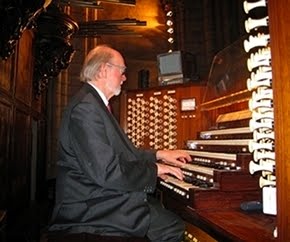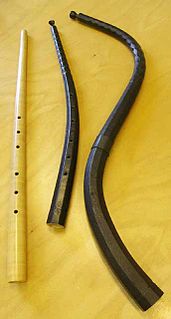Pierre de Manchicourt was a Renaissance composer of the Franco-Flemish School.
The Grand Prix du Disque for Ancient Music is a French award for excellence in ancient music, awarded by the Académie Charles Cros.
The Flemish chapel was one of two choirs employed by Philip II of Spain, the other being the Spanish chapel.
Ensemble Organum is a group performing early music, co-founded in 1982 by Marcel Pérès and based in France. Its members have changed, but have included at one time or another, Josep Cabré, Josep Benet, Gérard Lesne, Antoine Sicot, Malcolm Bothwell. They have often collaborated with Lycourgos Angelopoulos and are influenced by Orthodox music.

Les Pastoureaux, also known as the Petits Chanteurs de Waterloo, is a Belgian choir of boys and men based in Waterloo, Belgium. It was established in 1974 and is currently conducted by Philippe Favette. Their repertoire includes works of sacred music as well as songs of the world.

Jean-Pierre Leguay is a French organist, composer and improviser. He studied with André Marchal, Gaston Litaize, Rolande Falcinelli (organ), Simone Plé-Caussade (counterpoint), and Olivier Messiaen (composition), before serving as titular organist at Notre-Dame-des-Champs in Paris from 1961 to 1984. In 1985 he was named a titular organist at the Cathedral of Notre-Dame de Paris, alongside Olivier Latry, Yves Devernay and Philippe Lefebvre.
Guy Van Waas is a Belgian conductor, clarinetist and organist.
The Choeur de Chambre de Namur is a choir based in Namur, which is sponsored by the Communauté française de Belgique. Since 2010 the artistic director is Leonardo García Alarcón and conductor of the instrumental ensemble is Guy Van Waas.

Jean Tubéry is a French player of the cornett and conductor. He is noted for being, along with his own teacher Bruce Dickey and his colleague Jean-Pierre Canihac, one of the main cornett players to resurrect the baroque instrument, cornet à bouquin, as part of the historically informed performance movement and early music revival.
Diabolus in Musica is a French medieval music ensemble directed by Antoine Guerber. Guerber studied medieval music under fr:Dominique Vellard at the Centre de Musique Médiévale de Paris and at the Early Music Department of the Conservatoire National Supérieur in Lyon.
Leonardo García Alarcón is an Argentinian conductor specializing in baroque music.
The Victoires de la musique classique are an annual French classical music award event founded in 1986. The awards are the classical equivalent of the popular music awards Victoires de la Musique and the Victoires du Jazz. Most of the awards are for actual performers, orchestras, composers, etc. as opposed to the Diapason d'Or given to recordings - though there is an Enregistrement français de musique classique de l'année.
Michel Piquemal is a French choir conductor and conductor. He is also an operatic singer (baritone).

Bruno Boterf is a contemporary French tenor, specialising in Baroque and early music.

Claire Lefilliâtre is a contemporary French soprano specialising in Baroque music repertoire.









